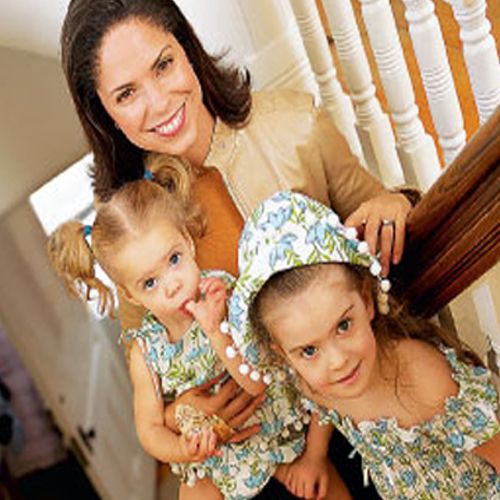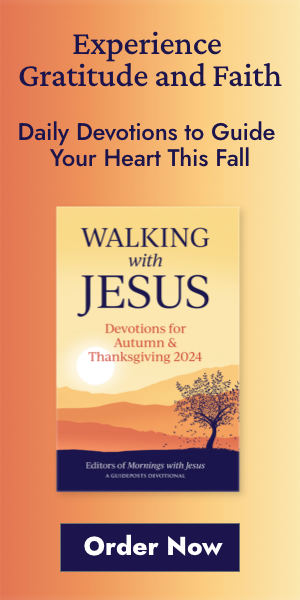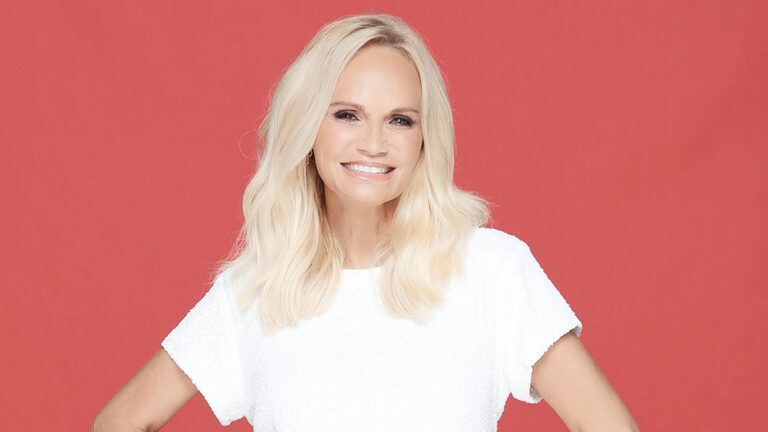My parents named me Maria de la Soledad: Spanish for the Blessed Virgin Mary of Solitude. It’s really no surprise, considering that faith has always been an essential part of my family’s life. You might even say that’s what brought my parents together. My parents were both immigrants—my mother from Cuba, my father from Australia—studying at Johns Hopkins University. And they both attended daily Mass at the church near campus. Every day my father would offer my mother a ride. Every day, she declined. Finally she said yes. One year later, the day after Christmas, the two of them were married.
My parents took care to instill their beliefs in my five siblings and me. Every Sunday morning at 7:30 a.m. all eight of us would pack into a pew at church. Our reward was Dad’s breakfast special: eggs, bacon, sausage, fresh orange juice and—my favorite—chocolate-covered, cream-filled doughnuts from the local bakery. We would eat and talk, then spend the rest of the morning together reading the Sunday newspaper. When I think about those Sundays with my family, I remember how safe, happy and loved I felt. How good the world seemed.
My Sunday ritual changed dramatically when I began a career in television news. I worked most weekends. Occasionally I would get to church on Saturday evenings, but it was never quite the same. I missed the music and ceremony of Sunday morning Mass.
By the time I was coanchoring the Weekend Today show at NBC, my husband, Brad, and I had two young daughters, Sofia and Cecilia. Because of my work schedule, we were able to attend Mass as a family only at the girls’ baptisms. I wanted faith to be central in their lives, yet logistically it seemed impossible.
Still, I felt a pull back to my spiritual roots, a yearning that only intensified after September 11 and the war in Iraq began. Like many people, I was searching for a deeper purpose in my life. Hundreds of my journalism colleagues, including my cohost, David Bloom, were embedded with coalition troops in the Middle East. Every day I read about air strikes, ambushes, civilians and soldiers dying. What kind of world are our girls growing up in? I wondered. How could I give them the same sense of security I had as a child?
On Sunday, April 6, 2003, the telephone rang at 1:00 a.m., waking me up even before my usual 3:30 a.m. alarm. I picked it up. An NBC operator asked me to hold for my boss.
At that moment I knew. Something happened to David. All week long we’d been reporting that the troops were approaching Baghdad. Rumors that Saddam Hussein might launch a chemical attack had run rampant. Everyone at the studio was worried about David and our other colleagues on the front. My boss got on the line. “Soledad,” he said, “David is dead.”
“What happened?” I asked. Did the tank David was in get hit? Had his unit been ambushed?
“He had an embolism,” my boss said. David had been sitting in a tank for hours. Doctors thought that may have led to the fatal blood clot.
Five hours later, Katie Couric, Matt Lauer and I were on the air, telling the nation that David was dead. I could hardly believe what we were reporting. David was my colleague and a friend. Memories of him flooded my mind. The tireless journalist. His reports were clearly some of the best filed from the front in Iraq. David often brought his three young daughters to see him on the set. We had at least half a dozen two-dollar bets we made over the most arcane facts. It was hard to imagine someone so completely full of life suddenly being gone.
The only consolation was that David died doing something he loved. At his funeral in New York at St. Patrick’s Cathedral, one of his friends read a letter David wrote to his wife just hours before his death. “Yes, I’m proud of the good job we’ve all been doing here, but in the scheme of things it matters little compared to my relationship with you, the girls and God.” David’s words struck a chord in all of us. It made a big impression to know that in the end he was thinking about his family, his faith.
A few months later, when my contract renewal at NBC was coming up, that thought came back to me. I faced a big decision. An opportunity at CNN had presented itself. I was offered the weekday position cohosting American Morning—a more challenging job, a longer day. I spent several weeks weighing the pros and cons. Brad and I discussed what impact the new job would have on our family, and what it would mean for my career. I loved my job at Today, and the people I was working with. Yet the job at CNN was a great opportunity.
After 15 years with NBC, I joined CNN. The first few weekends after I started my new job were eye-opening. Brad and I spent those days enjoying the summer in the city with the girls. Walking around Central Park with my family I realized I wanted to find someplace where Sofia and Cecilia could play outdoors, swim in lakes. A place where we could take them on walks in the woods.
Upstate we found a beautiful little cottage with a wraparound porch. Across the street was a lovely old church. Our first Sunday there, we walked over and settled into a pew—Sofia leaning on Brad’s shoulder, Cecilia nestled in my lap. It reminded me of my own childhood.
At coffee hour afterward, the pastor gave us a warm welcome and invited our girls to join the Sunday school class. I was thrilled to hear about all the activities we could get involved in—feeding the homeless, giving Christmas presents to underprivileged children, building homes for the poor in Nicaragua. We met our neighbors. It didn’t take long for the girls to start running around with their new playmates.
With two toddlers in tow, Brad and I joke that if the church weren’t right across the street, we’d always be late. Seriously though, Sunday morning Mass is again important in our lives, and it highlights exactly what’s essential in life—my family and my faith. I still worry about the world our girls are growing up in. But I know they’ll have a strong spiritual foundation to rely on—just as I had all those Sunday mornings ago.




